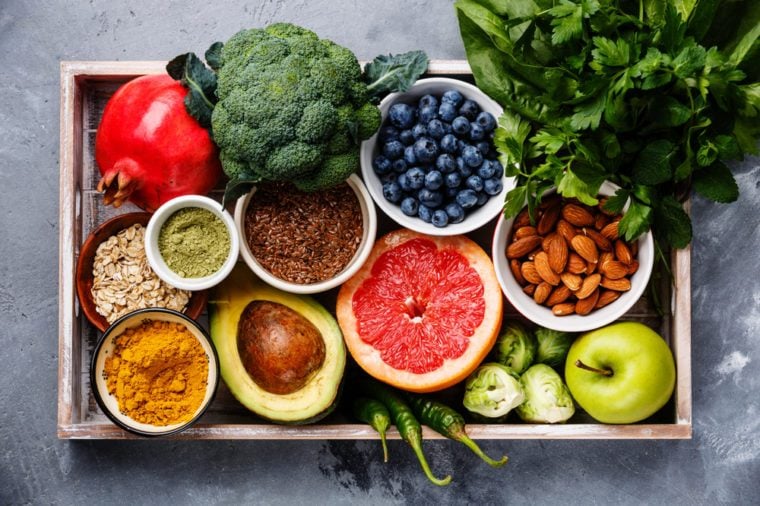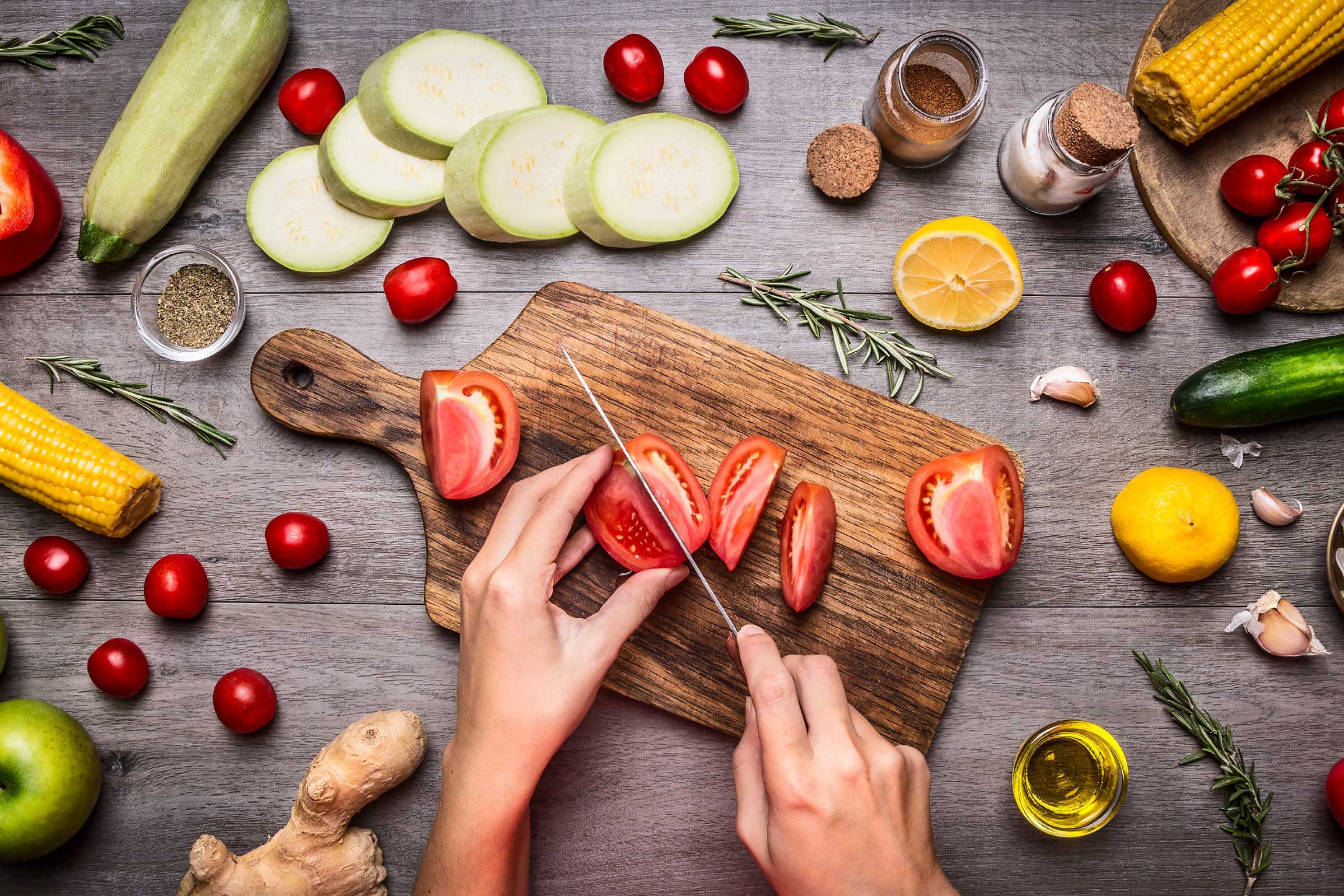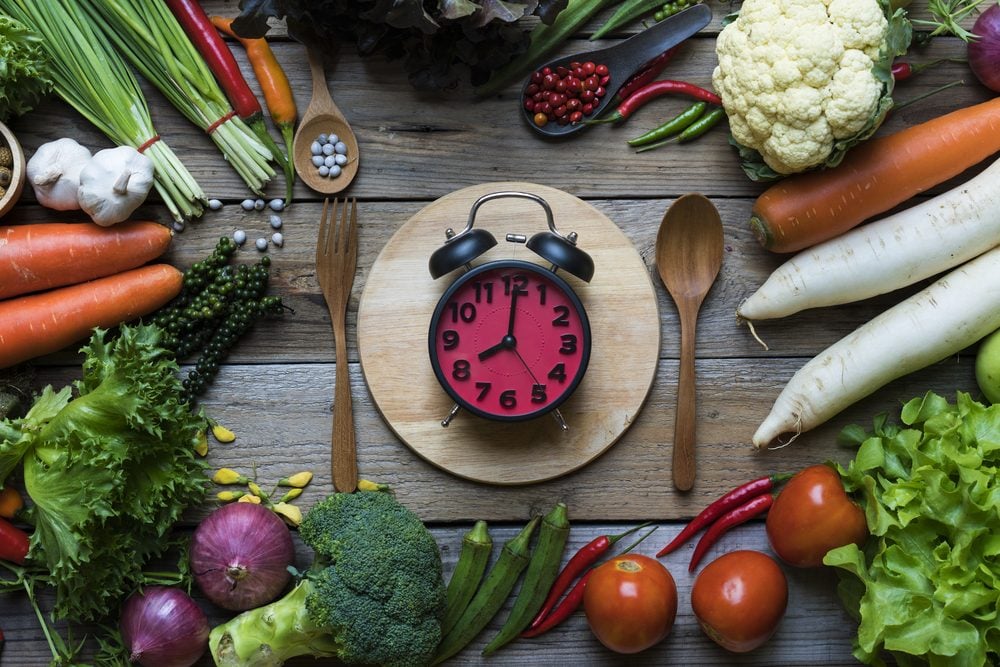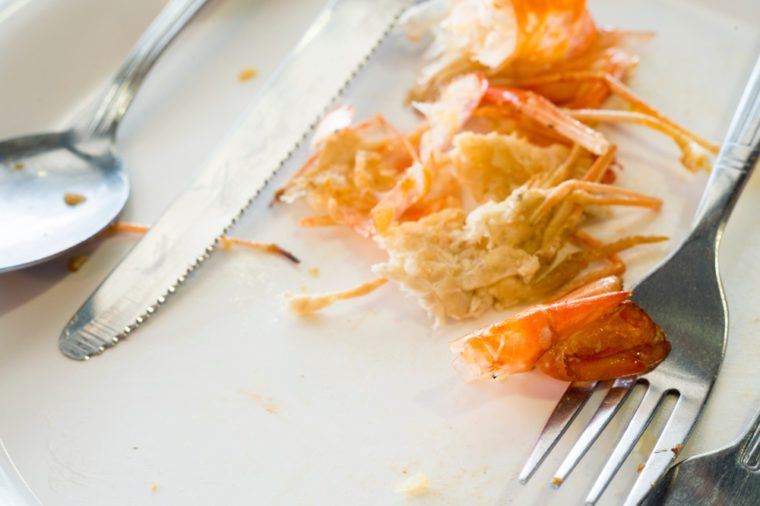
Sugar in all its forms not only adds pounds to your frame, but research shows it boosts your risk of cardiovascular disease and type 2 diabetes—it may even increase your risk for some cancers, too. Sugar addiction is no joke—brains can rewire themselves to crave sugar, and you can end up withdrawal symptoms when you don’t get enough of the sweet stuff.
“Sugar addiction is a measurable, physiological phenomenon many people suffer from,” says Ken Berry, MD, author of Lies My Doctor Told Me. “Far too many doctors and dietitians deny its existence, which is very unfortunate. Sugar addiction makes it very difficult for many people to make the dietary improvements needed to improve their health.” Watch for the signs that you’re eating too much sugar. Here’s how to figure out whether your sugar habit is an addiction.
You hide your sugar habit
Some people with a sugar addiction may recognize they’re eating too much, but instead of finding ways to cut back, they hide it. “Making excuses or making deals with yourself concerning sweets and desserts is a definite sign of sugar addiction,” Dr. Berry says. “No one hides broccoli in their closet; if you hide sweets, or sneak to eat them, you have a sugar addiction.”
You need more and more to satisfy the craving
As with many addictive behaviors or substances, your tolerance to sweets may build over time. “A sign of sugar addiction is the need for more to satisfy the craving,” says Erin Akey FNC, KNS, a nutritionist and chef. “At first, one scoop of ice cream does the trick, but as you become more addicted you need more and more to get a fix. If you need reasons to cut back, here are 11 scary things sugar does to your body.
You eat sugar even when you’re not hungry
Stuffed after a big meal—but you still have room for a big slice of cake? “The number one sign you have an addiction is that you’re turning to sugar when you’re not physically hungry,” says Lisa Rachel Snyder, intuitive eating coach and founder of the Beautiful Badass Method.
You always crave sweets
“After a sugar binge, your blood sugar will fall because insulin shoves all that sugar into the cells to prevent sugar damage,” explains Carolyn Dean, MD, ND, a health, diet, and nutrition expert and author of Hormone Balance, The Magnesium Miracle, and The Complete Natural Medicine Guide to Women’s Health. “That fall causes low blood sugar and more cravings.” Watch out for these sneaky sources of sugar.
You crave salty foods
“Cravings for salty foods are one sign that your body is not getting the nutrition that it needs. This is surprisingly common among those who are addicted to sugary foods, as these people are often deficient in key nutrients,” says Lisa Richards, a nutritionist and creator of the Candida Diet. “If you find yourself regularly eating sugary snacks, you’re probably not eating enough of the healthy proteins and fats that your body needs. Cravings for salty and savory foods are one way that your body might be telling you to take a break from the sugar and eat something more nutritious.
“The inverse is true too,” she adds. “If you eat too much salty food, you might find yourself craving sugary foods or simple carbohydrates. The key is balance—eating foods that are rich in the micronutrients and macronutrients that your body needs to function and thrive.”
You try to quit and have unusual symptoms
Sugar addiction can be both a behavioral addiction—you get used to eating sugar after meals or at certain times of the day—and it can also be a chemical addiction. When you quit or interrupt your normal schedule, your body may show signs of distress or withdrawal. “Quitting sugar too abruptly can cause your body to have withdrawal symptoms,” says Adam Kadela, founder of Dexafit. “Some of the most common sugar addiction symptoms may include headaches, lethargy or feeling tired, cravings, muscle pain, nausea, gas and bloating, and even insomnia. In most cases, these symptoms intensify after 24 hours. The best way to give up sugar is slowly, by cutting back a little at a time.” Here are 8 more surprising ways to help you kick your sugar habit.
You use sugar to soothe
If you’re craving something sweet after a break-up, sad movie, or a bad day, watch out. “A psychological symptom of a sugar addiction is when individuals continuously turn to sugar as a means to cope with life stressors, boredom, or other psychological issues such as depression or anxiety,” says Lin Anderson, LMHC, M.A., Ed.M and Aaron Sternlicht, LMHC, CASAC, licensed therapists specializing in addiction at their private practice Family Addiction Specialist. “Indulging in sugar to acquire such emotional relief is extremely unhealthy, as it does not allow the individual to feel their emotions or deal with them properly.” And one recent study suggests it doesn’t even boost your mood.
You know the potential consequences and eat sugar anyway
It’s a bad sign “if you eat sugar and junk food compulsively, even though you realize the negative consequences,” Dan DeFigio, author of Beating Sugar Addiction For Dummies. Here are just some of the ways sugar is making you sick.
You go out of your way to get sugar
If you’re making special late night trips to the gas station to pick up a pint of ice cream, you should take a hard look at your priorities, according to the Addiction Center. This is a clear sign your need for sugar is spinning out of control.
You have feelings of guilt about eating sugar
Feelings of guilt about eating any food may be a sign of an eating disorder. If you feel shame about your sugar habit, you may want to discuss this with your doctor or a therapist. Watch for these silent signs that you could have an eating disorder.
Every product is independently selected by our editors. If you buy something through our links, we may earn an affiliate commission.
The post 11 Signs You Have a Sugar Addiction appeared first on Reader's Digest.
from Reader's Digest http://bit.ly/2zcwXiJ


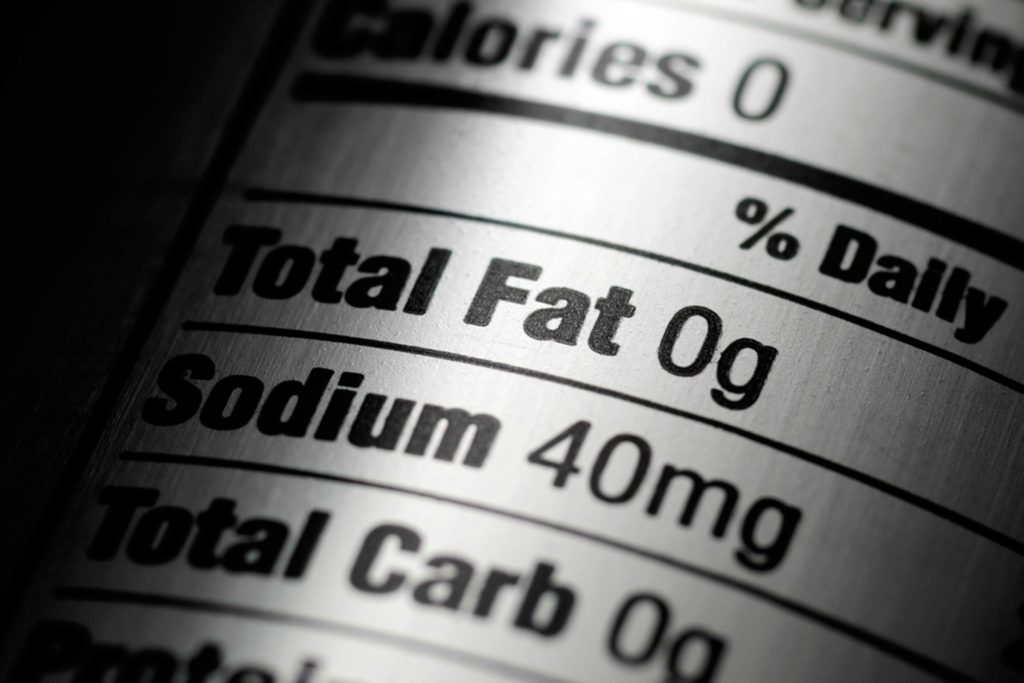










 It’s not only possible to lose weight overnight—it’s actually a burgeoning area of research.
It’s not only possible to lose weight overnight—it’s actually a burgeoning area of research. 
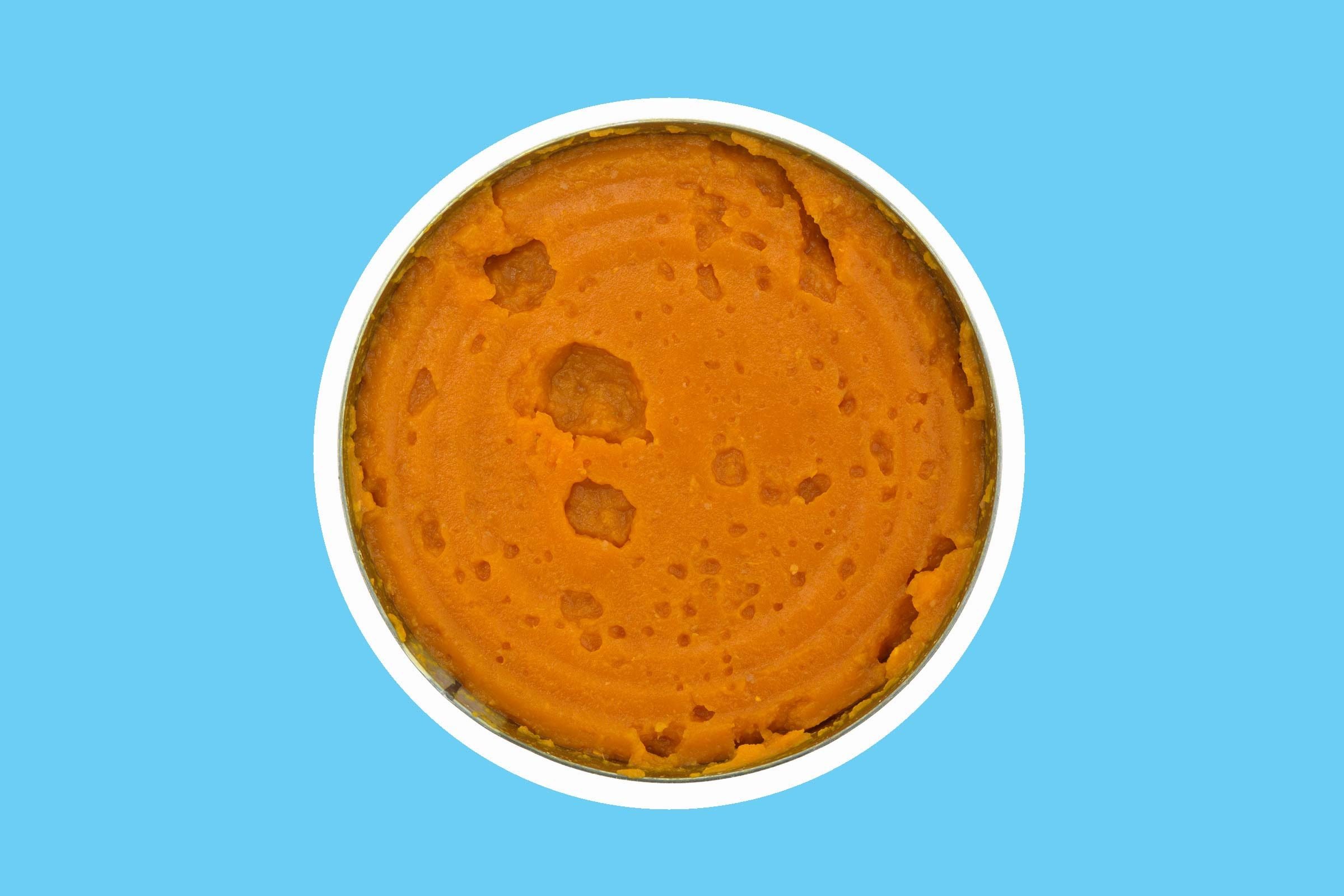


 Assuming you are OK with needling and going for visits aren’t out of your budget, acupuncture for weight loss could be an option. Once considered alternative medicine, acupuncture is moving toward the mainstream and recommended by many doctors and may even be covered by insurance. The practice involves inserting fine, clean needles along specific pathways on the body to improve chi or energy flow. It doesn’t encourage weight loss in isolation, but when combined with a reduced calorie diet and regular exercise, women who got ear acupuncture weekly lost seven pounds more than their counterparts who only ate a reduced calorie diet and exercised. The women getting acupuncture also reported feeling less hungry. Here are some other
Assuming you are OK with needling and going for visits aren’t out of your budget, acupuncture for weight loss could be an option. Once considered alternative medicine, acupuncture is moving toward the mainstream and recommended by many doctors and may even be covered by insurance. The practice involves inserting fine, clean needles along specific pathways on the body to improve chi or energy flow. It doesn’t encourage weight loss in isolation, but when combined with a reduced calorie diet and regular exercise, women who got ear acupuncture weekly lost seven pounds more than their counterparts who only ate a reduced calorie diet and exercised. The women getting acupuncture also reported feeling less hungry. Here are some other 